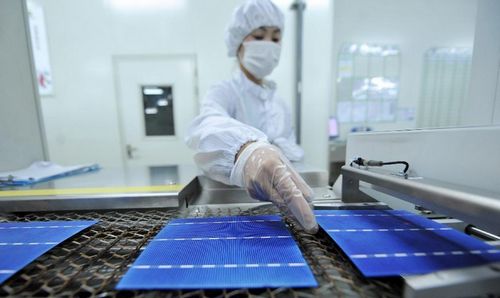EU urged to end anti-dumping probe

China expressed "deep regret" Thursday over the European Commission's decision to launch an anti-dumping investigation into solar panel imports from China and urged the European Union (EU) to drop its protectionist practices to avoid damaging the healthy development of the global clean energy industry.
"Restricting China's solar panel products will not only hurt the interests of both Chinese and European industries but also undermine the healthy development of the global solar and clean energy sector," Shen Danyang, a spokesman of the Ministry of Commerce, said in a statement on its website Thursday.
Shen urged the EU to honor its earlier commitment of not introducing new trade and investment protectionist measures before 2014 and abandoning existing measures.
It also called on the EU to seriously consider China's position and proposal and resolve the trade friction on solar products through consultation.
The European Commission announced Thursday it would launch an investigation into whether Chinese solar makers have been selling solar panels to the EU at below fair market value and causing material injury to the EU industry.
A group of EU solar companies led by Solarworld AG, Germany's biggest maker of solar panels, filed a complaint with the EU in late July, accusing Chinese manufacturers of selling their products below cost in Europe.
In response, major Chinese solar companies including Yingli Green Energy Holdings Co and Suntech Power Holdings Co in July called on the Chinese government to enter high-level dialogues with the EU to block it from initiating the investigation.
"The solar industry is based on a global and complex value chain, and will be therefore substantially and negatively affected by trade protectionism. There would be no winners but rather immeasurable damage and regression from our fundamental goal of making solar a cost-effective energy source available to everyone," Darren Thompson, Managing Director of Yingli Green Energy Europe GmbH said in a statement sent to the Global Times Thursday.
"Such actions would significantly delay the onset of a sustainable solar electricity market free of government support," Thompson said.
China exported solar panels worth $20.4 billion to the EU in 2011, accounting for about 60 percent of China's total solar panel exports.
The EU's announcement also came after German Chancellor Angela Merkel urged the European Commission and China last week to solve the solar panel dispute through communication, rather than by resorting to anti-dumping proceedings during her visit to China.
China's purchase of EU raw materials and equipment in the solar energy sector benefits the EU in terms of employment and its own green growth, the China Chamber of Commerce for Import and Export of Machinery and Electronic Products (CCCME) said in a statement.
The CCCME urged the EU to refrain from employing trade remedy measures and redress its protectionist measures.
Gao Hongling, deputy secretary-general of the China Photovoltaic Industry Alliance (CPIA) told the Global Times, "While we will actively respond to the case, we will also reflect on the industry's problems of overcapacity, which cannot be absorbed by the international market. The case may offer an opportunity for consolidation of the domestic solar industry and expansion of solar technology applications in China."
China's solar panel production capacity reached 35GW in 2011 while the world added 27.7 GW of new capacity in the year.
Solarworld's US unit has already filed a similar complaint in the US, resulting in preliminary antidumping duties of 31 percent to 250 percent on solar panel imports from China following preliminary anti-subsidy duties of 3 percent to 5 percent on Chinese solar panels in March.
Meanwhile, China has opened anti-dumping and countervailing investigations into polysilicon, the main material used in solar panels, imported from the US in July.
Speculation that China might launch anti-dumping and countervailing investigations into polysilicon imports from the EU as a retaliatory measure have emerged over the last two weeks.
"A trade war cannot help solar manufacturers out of the current downturn. They should cooperate to weather this tough time," Tu Xinquan, with University of International Business and Economics, said.